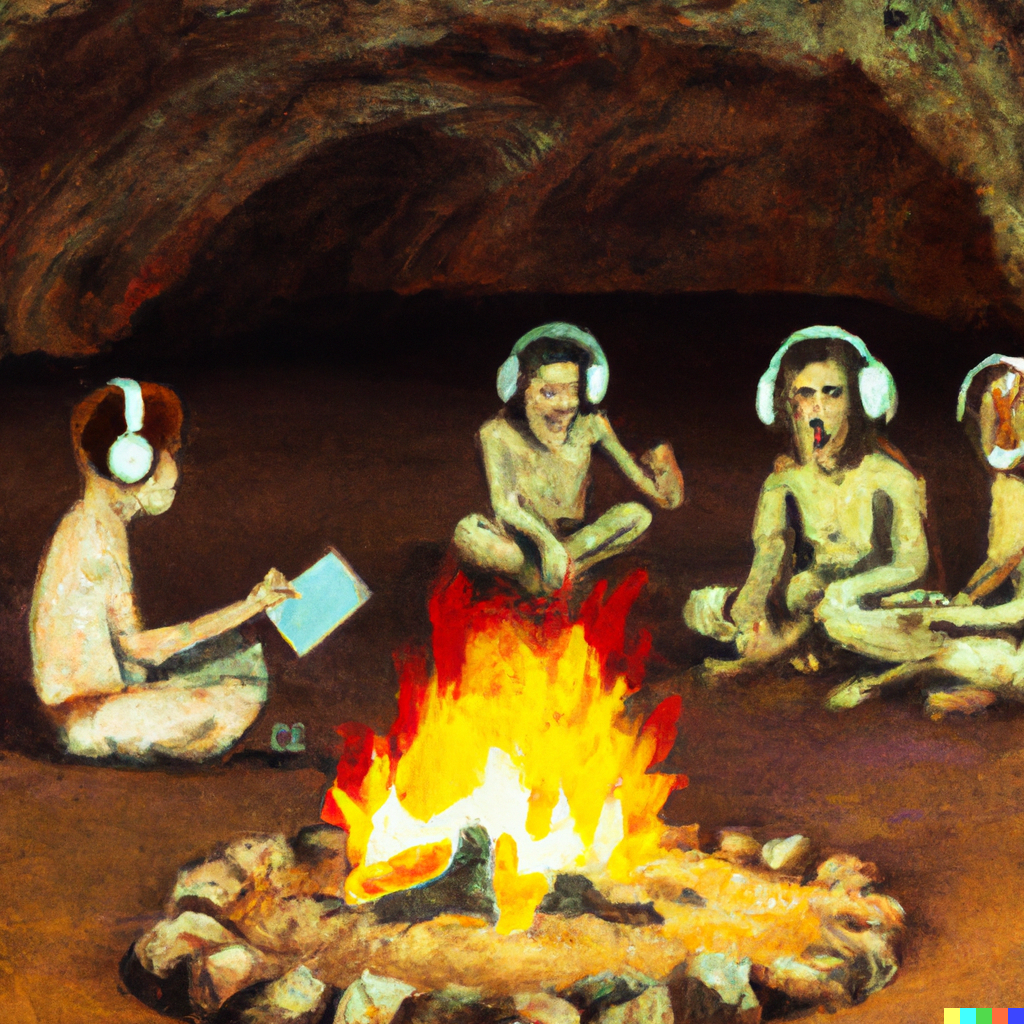The Campfire Method Of Podcasting
By Rhys Waters
Do you ever listen to some podcasts and feel, well, excluded? The hosts might be using terminology not relevant to a wider audience, or refer to jokes that only the people in the room will get. I feel like they forget I’m even listening.
Also the production can feel like a barrier to connecting with the hosts and content. As someone passionate about editing, I hear every repetition and awkward pause. It makes me feel like the producers had no concern for my time and assume my commitment to listen regardless of comfort. I don’t mean to throw a ton of shade, there are many podcasts on their ‘journey’ of total amateur to podcast superstar, but I sometimes hear these issues in plenty of professional productions.
At the core of these issues, I see one cause: They forget the audience is in the room.
It’s why we like to use what we call the ‘campfire method’ (Different Podstarter team members have their own names, but I love this one as it’s so visual). Which is as simple as its name - Imagine telling your story around a campfire with your guests and audience.
Safety warning: Don’t start a campfire in the middle of your studio, our campfire is metaphorical.
But seriously, the campfire is the oldest podcast studio. Where the oral tradition thrived eons before cheap USB mics could be delivered to the doorstep of your cave. As our ancestors welcomed family, friends and travelers around their communal fires, lore, knowledge, poetry and music was shared. Podcasting is at its best when it offers an intimate listener experience, and the campfire is the place where this can happen.
So the next time you sit in the studio, alone or with your co-host. Engage in a thought experiment. Imagine the listener is sitting opposite you, a mug of tea in hand, getting ready to eavesdrop on your record session. Nobody wants to listen to a podcast they dislike, they want you to succeed when they hit play. Remember that they are yours to lose, so make them comfortable and welcome.
You’ll find yourself being less tangential, explaining obscure concepts in more relatable ways and giving context to in-jokes. You’ll be aware that the person on the other side of the campfire is paying close attention and wants to be taken on a journey by you.
If you think you need us to come light a fire in your podcast dynamic, reach out!


